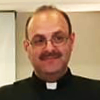Healthcare
Al Ahli Hospital, Gaza
 Founded 1882, Al Ahli Arab Hospital is located in Gaza City and occupies a beautiful campus in the city center. With well-tended grounds, it is a haven of peace in the middle of one of the world’s most troubled places. The political status of Gaza affects all aspects of life there because of restrictions on movement of materials and people in and out. Electricity, medicines, food, fuel, and personnel are all restricted to some extent. However, Al Ahli Arab Hospital, offering 80 beds, continues to provide some of the finest medical care available in the region. For example, Ahli runs a completely free-of-charge program for early detection of breast cancer among women above 40 years of age. In addition, the Center for Elderly Women and the Mobile Clinic Program provide free medical care and food to people from surrounding towns and villages.
Founded 1882, Al Ahli Arab Hospital is located in Gaza City and occupies a beautiful campus in the city center. With well-tended grounds, it is a haven of peace in the middle of one of the world’s most troubled places. The political status of Gaza affects all aspects of life there because of restrictions on movement of materials and people in and out. Electricity, medicines, food, fuel, and personnel are all restricted to some extent. However, Al Ahli Arab Hospital, offering 80 beds, continues to provide some of the finest medical care available in the region. For example, Ahli runs a completely free-of-charge program for early detection of breast cancer among women above 40 years of age. In addition, the Center for Elderly Women and the Mobile Clinic Program provide free medical care and food to people from surrounding towns and villages.
The Hospital is also now sponsoring Gaza’s first physician training for Minimally Invasive Surgery. Plans are in development for adding a Cancer Center featuring radiation treatment. In a region where hardship is commonplace, the harsh conditions in Gaza especially stand out. Nevertheless, Al Ahli Arab Hospital represents a beacon of peace and hope for all the people it serves.
St. Luke’s Hospital, Nablus, Palestine
Established more than 100 years ago, St. Luke’s Hospital in Nablus is aptly named for the Christian Evangelist, Gospel Writer, and physician. It is a hospital of 60 beds that provides both general and specialty medical care and surgical services. These include intensive care, outpatient treatment, rehabilitation, obstetrics, and neonatal intensive care. As one of the first hospitals in the Nablus area, St. Luke’s continues to assert a vital presence in this city of more than 300,000.
Currently, a new emergency and trauma center is being equipped, as well as a new neurosurgery program, both providing much-needed services in the region. In addition, recent restructuring and reorganization is enhancing programs in urology and orthopedics, ensuring that the hospital adapts to the changing needs of its patients.
St. Andrew’s Diabetes Clinic, Ramallah, Palestine
 Located on the campus of St. Andrew’s Church, this outpatient clinic was founded in 2013 to focus on treating the complicated consequences of diabetes. Open to all regardless of faith, the clinic offers screening,
Located on the campus of St. Andrew’s Church, this outpatient clinic was founded in 2013 to focus on treating the complicated consequences of diabetes. Open to all regardless of faith, the clinic offers screening,
counseling, and treatment for diabetic or pre-diabetic patients, as well as educational programs that promote cardio-vascular health. The clinic’s services are available to anyone who cannot otherwise afford treatment elsewhere, with a sliding scale fee being used to allow those in need to have access to high quality care.
The Penman Clinic, Zababdeh, Palestine
 Begun in 1992 as an outreach program of St. Matthew’s Church and St. Luke’s Hospital, Nablus, the Penman Clinic—named after a former Archbishop of Melbourne—is a community clinic located in the northern West Bank
Begun in 1992 as an outreach program of St. Matthew’s Church and St. Luke’s Hospital, Nablus, the Penman Clinic—named after a former Archbishop of Melbourne—is a community clinic located in the northern West Bank
town of Zebabdeh, one of only a handful of municipalities in Palestine with a majority Christian population. In this relatively rural area, the clinic is an essential primary care facility for not only the residents of this town, but also those living in nearly two-dozen surrounding villages. A general physician is available at all times in the clinic. Other specialists assist at designated times, providing more specific care. Dental services are also available every day. With a clinical laboratory and pharmacy, the Penman Clinic is a uniquely comprehensive healthcare resource for the residents of the northern West Bank.
Jerusalem Princess Basma Centre
The Jerusalem Princess Basma Centre (JPBC), located on Jerusalem’s Mount of Olives, operates under the umbrella of the Episcopal Church in Jerusalem and the Middle East, and under the supervision of the Anglican Archbishop in Jerusalem, in the fields of Health, Disability, and Inclusive Education.
JPBC implements long-term, community-based programs and has always maintained a clear vision of providing Comprehensive Rehabilitation and Inclusive Education through the Child Rehabilitation Centre and the Inclusive School.
The JPBC Child Rehabilitation Centre has a track record of quality service, and accordingly, obtained the International Standard for a Quality Management System ISO 9001:2008 in 2006, 2009 and 2012. It then moved to the Joint Commission International Accreditation (JCIA) for Ambulatory Care, which is on a three-year cycle, and has been achieved three times: in 2015, 2018 and 2021.

Our Inclusive School is a unique model of inclusive education serving children with disabilities from Jerusalem from Kindergarten up to the 12th grade.
Special programs:
-
Mother and Family Empowerment Program (MFEP): This program is attached to the Comprehensive services at the Child Rehabilitation Centre. Through this program, JPBC provides training on rehabilitation for the mothers and families, awareness-raising and education for mothers, and psychosocial support.
-
Outreach program: The Jerusalem Princess Basma Centre serves children from across the West Bank through our Outreach Program. Making an average of 60 outreach visits and assessing over 1300 children a year, the Centre is able to support families that do not have access to adequate medical expertise. Children in need of specialized treatment are referred to the rehabilitation centre in East Jerusalem.
-
The Professional Clinical Training Program: In partnership with Palestinian Universities, a Clinical Training Program is provided to students in the fields of Physiotherapy, Occupational Therapy, Speech and Language Therapy, Social work, and Special Education. Forty university students on average attend the Clinical Training Program each year.



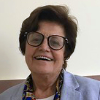
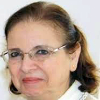
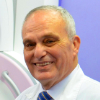

 Located on the campus of St. Andrew’s Church, this outpatient clinic was founded in 2013 to focus on treating the complicated consequences of diabetes. Open to all regardless of faith, the clinic offers screening,
Located on the campus of St. Andrew’s Church, this outpatient clinic was founded in 2013 to focus on treating the complicated consequences of diabetes. Open to all regardless of faith, the clinic offers screening,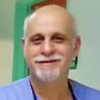
 Begun in 1992 as an outreach program of St. Matthew’s Church and St. Luke’s Hospital, Nablus, the Penman Clinic—named after a former Archbishop of Melbourne—is a community clinic located in the northern West Bank
Begun in 1992 as an outreach program of St. Matthew’s Church and St. Luke’s Hospital, Nablus, the Penman Clinic—named after a former Archbishop of Melbourne—is a community clinic located in the northern West Bank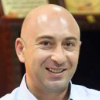

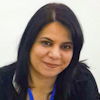
 Established in 1964 as a K-12 grade and young-adult boarding school, HLID offers a full range of educational, vocational, and rehabilitative services for over 100 deaf and deaf-blind students. It also has outreach programs to Syrian refugee camps in Northern Jordan and through the Jofeh Community Rehabilitation Centre in the Jordan Valley.
Established in 1964 as a K-12 grade and young-adult boarding school, HLID offers a full range of educational, vocational, and rehabilitative services for over 100 deaf and deaf-blind students. It also has outreach programs to Syrian refugee camps in Northern Jordan and through the Jofeh Community Rehabilitation Centre in the Jordan Valley.
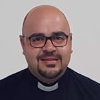
 Established in 1996 as an outreach program of the Holy Land Institute for the Deaf, the Jofeh Center provides therapy, vocational education, and in-house workshops to students with a wide range of physical and cognitive disabilities. The staff also offers vocational training to disabled adults living within thirteen villages located just east of the Jordan River. These include woodworking, sewing and embroidery, papermaking, weaving, and craftmaking. Beyond this, Jofeh’s field staff conduct hearing and vision testing and provide hearing aids and eyeglasses. They also offer free meals to low-income children under the age of two.
Established in 1996 as an outreach program of the Holy Land Institute for the Deaf, the Jofeh Center provides therapy, vocational education, and in-house workshops to students with a wide range of physical and cognitive disabilities. The staff also offers vocational training to disabled adults living within thirteen villages located just east of the Jordan River. These include woodworking, sewing and embroidery, papermaking, weaving, and craftmaking. Beyond this, Jofeh’s field staff conduct hearing and vision testing and provide hearing aids and eyeglasses. They also offer free meals to low-income children under the age of two. St. Luke’s is a both a rehabilitation center and a boarding & day school that serves students with a wide range of cognitive disabilities. Located just outside of Beirut, the center serves about 50 children and young adults, with most of the students coming from poor families. At St. Luke’s, they receive education and care at no cost to the family. The center’s highly trained teachers and staff teach a full academic curriculum, utilizing adaptive learning technologies. All students participate in vocational training programs, including carpentry, computer skills, sewing, cooking and gardening. The center also maintains a beautiful vegetable garden that supplies the center’s kitchen. Most recently, St. Luke’s obtained machines for the making of fine chocolates, which are then custom-wrapped and sold to eager customers, with all proceeds going towards the benefit of the Center.
St. Luke’s is a both a rehabilitation center and a boarding & day school that serves students with a wide range of cognitive disabilities. Located just outside of Beirut, the center serves about 50 children and young adults, with most of the students coming from poor families. At St. Luke’s, they receive education and care at no cost to the family. The center’s highly trained teachers and staff teach a full academic curriculum, utilizing adaptive learning technologies. All students participate in vocational training programs, including carpentry, computer skills, sewing, cooking and gardening. The center also maintains a beautiful vegetable garden that supplies the center’s kitchen. Most recently, St. Luke’s obtained machines for the making of fine chocolates, which are then custom-wrapped and sold to eager customers, with all proceeds going towards the benefit of the Center.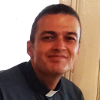
 Currently under construction, this retirement center will offer apartments for up to 40 elderly people, allowing them to live with dignity in a safe and secure environment. The ground floor, which has now been completed, will offer a community center for use by the residents and their families. The need for such a home is great in the West Bank, as those who can, emigrate for the better prospects of the west leaving elderly family members behind. The Christian population has shrunk heavily over the last few years and those left need help and support in the later years of their lives. The Diocese of Jerusalem, through the construction of the Birzeit home, will seek to offer a lifeline to these people. By so doing it will strive to keep their hope alive through this “faith in action.”
Currently under construction, this retirement center will offer apartments for up to 40 elderly people, allowing them to live with dignity in a safe and secure environment. The ground floor, which has now been completed, will offer a community center for use by the residents and their families. The need for such a home is great in the West Bank, as those who can, emigrate for the better prospects of the west leaving elderly family members behind. The Christian population has shrunk heavily over the last few years and those left need help and support in the later years of their lives. The Diocese of Jerusalem, through the construction of the Birzeit home, will seek to offer a lifeline to these people. By so doing it will strive to keep their hope alive through this “faith in action.”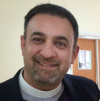
 Established in 1961, this nursing home is a residential facility for elderly women, providing them with safe housing and nursing care. Its ministry is especially to those women whose families have left the country and are not able to provide adequate care for their loved ones from abroad. A major part of the Home’s ministry is to provide not just for the residents’ physical needs, but also for their spiritual and emotional support. Residents receive Holy Communion regularly, and they are also able to listen to services directly broadcast to them from the church. They live in an enriching family environment where they receive social, emotional, and spiritual support.
Established in 1961, this nursing home is a residential facility for elderly women, providing them with safe housing and nursing care. Its ministry is especially to those women whose families have left the country and are not able to provide adequate care for their loved ones from abroad. A major part of the Home’s ministry is to provide not just for the residents’ physical needs, but also for their spiritual and emotional support. Residents receive Holy Communion regularly, and they are also able to listen to services directly broadcast to them from the church. They live in an enriching family environment where they receive social, emotional, and spiritual support.